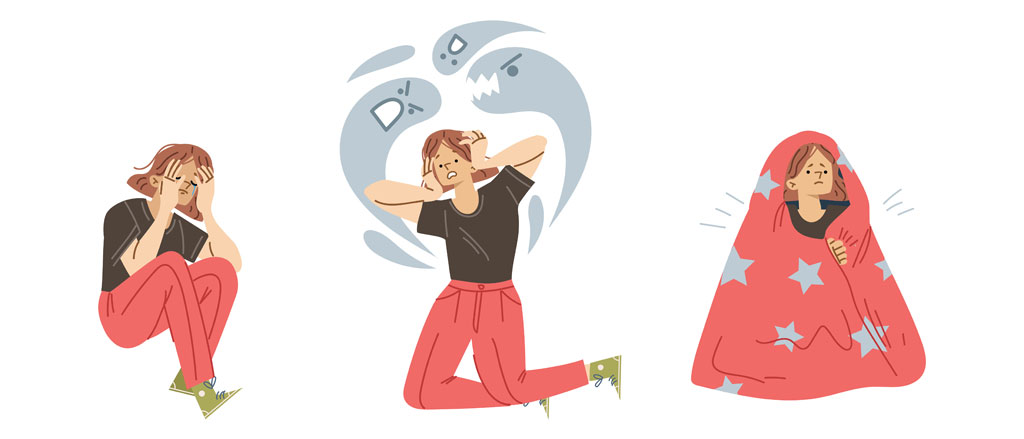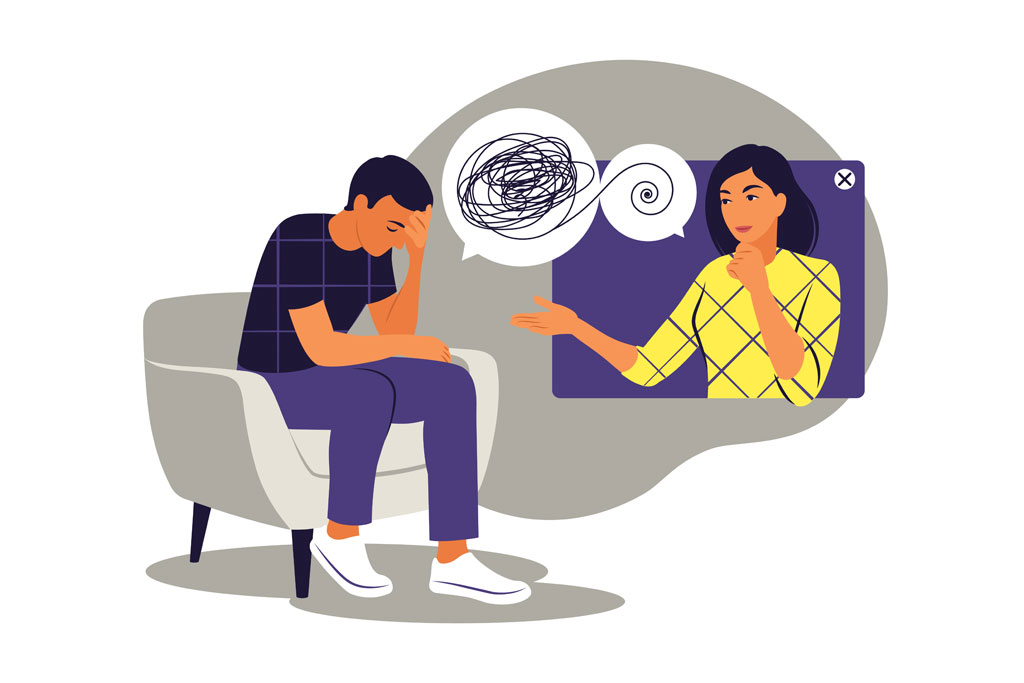There is rapid growth the mental health disorders globally and there is a lack of mental healthcare providers. A large population portion is affected by neurological disorders but very few get the right treatment.
The unavailability of psychiatric specialists especially in remote areas is also the reason why the disorder remains unattended. There are other reasons like social stigma where the patient is reluctant to discuss the mental health matters openly with the family or in the social circle. Mental health is a global issue and needs open acceptance and social attention.
Keynotes
Telehealth technology has become very effective in providing positive solutions to many chronic disorders. Telepsychiatry persistently applies important treatment implications for schizophrenia. It has been proved that schizophrenia has various challenges and special attention are the key points to handling the chronic disorder and it has been handled well by telepsychiatry.
Understanding Schizophrenia?
Schizophrenia is a mental disorder where the brain cells which control the feelings or actions are affected. It is affected so badly that person has no control over thinking or understanding the situation.
The exact cause of schizophrenia remains unknown, it is generally a genetic disease or can happen due to some major changes in the brain chemistry. The patient affected is usually lost and out of action with the social world. Have difficulty explaining or understanding how bad physiological damage is done. Difficulty in concentration, disorganized thoughts and speech, memory issues, and delusions or hallucinations are some symptoms of schizophrenia.
The treatment involves special attention to the patient with medications and psychotherapy with good psychological attention and care from the loved ones.

What are the Schizophrenia symptoms?
Schizophrenia affects the part of the brain that controls the understanding and controlling of the actions. Every patient has different effects of this mental disorder. Schizophrenia signs are:
- Hallucinations/Delusions
- Disorganized thoughts
- Disorganized speech
- Memory loss
- Social detachment
- Depression
- Insomnia
- Lack of personal management and coordination
- Paranoid behavior pattern
Protective measures are tactfully taken to overcome these symptoms as every psychological case varies even if has the same disorder.

What are the types of telepsychology?
1. Video/virtual Therapy
Virtual reality therapy allows users to experience the virtual world and manage the conditions in various stages. The user’s activity is monitored safely and provided consultation to overcome the psychological issues.
2. Telemonitoring
The mental chronic situations can be handled by the psychiatrist through frequent telecommunication. In conditions like depression or paranoid behavior patterns, patients can be handled by telemonitoring and given the right treatment.
3. Telerehabilitation
The patient needs huge psychological support post-surgery or post disease recovery span of time. In such conditions, tele rehabilitation is provided to give strong mental support and maintain a positive attitude towards life.
4. Self-monitoring application programs
In chronic conditions like anxiety or insomnia, patients can apply self-help programs designed for them. They can self-monitor their activities and follow the web-based plan assigned for them, which helps to overcome their psychological issues.
How telepsychiatry is beneficial in treating mental health disorders?
Telepsychiatry is the process of treatment like counseling for psychological patients from distance through telephonic meetings or audio/video conferencing.
The affected patients have some reservations or social acceptance fears which stop them to approach the right consultation at the right time, other reasons like non the availability of mental health experts in the remote areas. Under such circumstances, telepsychiatry has shown various positive aspects in the treatment of chronic mental health issues.
Telepsychiatry conducts personalized designed counseling sessions maintaining the privacy of the patient. The certified psychologists or mental health experts take the online consulting sessions along with mental monitoring and prescribed medication.
Telepsychology provides wide options for the patient to receive psychiatric help from the many specialists in the data structure according to one’s requirement. The option to choose the subject specialist is one of the advantages of the telepsychology facility.
What are the most widely used telepsychology applications?
Web/Mobile application program designed for the complete telepsycological solutions for various categories is widely used by healthcare providers and licensed psychiatrists.
The built-in program helps to diagnose the condition, monitor the patient’s behavior pattern, assign tasks for condition recovery, track health records, and provide educational/awareness video tutorials, and post-recovery management programs for condition stability.
Telepsychology application features:
- Appointments reminders
- Medication reminders
- HIPAA secure storage
- Client case study
- Live chat
- Online check-ins
- Digital health track
- Virtual educational plans
- Text messaging
- Gamification

How does technology influence schizophrenia?
Digital technology is highly capable to overcome schizophrenia. Many users use mobile phones, laptops, or ipads and get online support programs that provide great help in tackling psychological issues.
To cope with the symptoms of schizophrenia, mobile applications provide various features. It is been observed that people suffering from schizophrenia respond faster and use mobile app technology more than compared to other users.
Mental illness can be managed digitally by using music or audio feature to manage the sound hallucinations, schedule online appointments and consultations, monitor the symptoms, identify and cope with the recovery strategies, and get educational programs and tutorials on how to get mental support and stability.
Digital technology tools’ influence is very positive and effective in handling the most chronic mental health disorder.
Conclusion
Assistive technology in telepsychology majorly has three participants. The patient, healthcare provider, and family member facilitate the self-management assistant program. AT is a tool that helps the recovery of chronic conditions. It also has various educational and awareness tools that guide and help patients to follow the right track of treatment. The user also successfully exchanges the experience and how positive features help him come out of the most difficult situation, such details are recorded for the mental health tracking program.
The user learns from the experience of using the AT and educational programs, the information is shared by the health care provider for the further recovery process.
Telemedicine app development and digital technology have come a long way in infusing the mental health disorder of schizophrenia and eventually given many successful results in the improvement of the patient’s mental condition.
Telepsychiatry has therefore been very helpful in handling the most sensitive mental health conditions with technological solutions.

